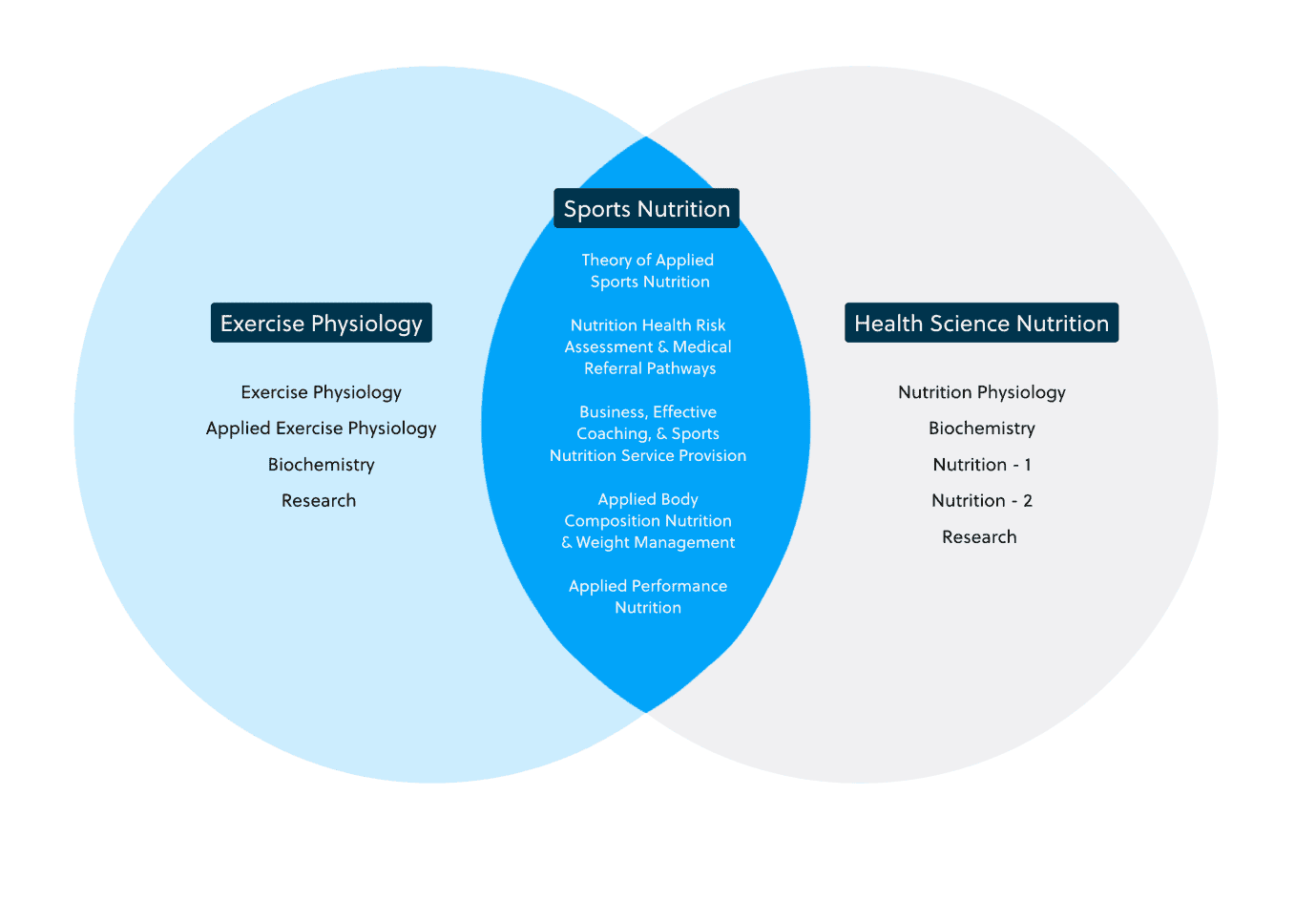The gold standard in foundational sports nutrition education.
Do you want a fulfilling and high paying income stream? By becoming an accredited sports nutritionist you can make a great living by making a difference.

Based on member data, on average our students make $135,000 a year full-time and $56,000 a year part time.
Increase Your Income And Coach Clients From Anywhere In The World By Becoming An Accredited & Fully Insured Sports Nutritionist
Who The Certification Is For

Fitness Professionals
Personal trainers and coaches who want to increase their income, get better results for their clients and be able to coach clients from anywhere.

Recent Graduates
People who’ve graduated in a sports science, nutrition or exercise degree that want to complete their education and become legally insured.

University Students
People currently studying who want to graduate with paying clients, and find out if they like the industry before committing to 4+ years of study.

Newcomers
People who want a fulfilling and high-paying career that love the idea of helping people achieve their health goes through nutrition.
The Graduate Certificate has been designed to meet the minimum requirements for practising in Sports Nutrition. Students who complete this program become eligible to register, insure, and practice as Accredited Sports Nutritionists provisionally so they can understand what a career in nutrition looks like and the capacity with which they wish to practice.
The majority of graduates and professionals will be working in some form of private practice, which is heavily dependent on your skills as a service provider to find, convert and help clients achieve their goals.
Rather than more traditional models, we recognise that spending 4-5 years, and $50,000+ to become qualified and practise, only to find out that private practice isn’t for them (which is the majority of work in applied sciences and dietetics), isn’t the ideal pathway to take.
We appreciate that not everyone wants to make a profession with private practice and don’t intend to sell you on a one-size-fits-all pipe dream. However, if you do feel like this is the career for you, and you want to make it your primary career path, you will need further study after 3 years.
About The Certificate
Our Graduate Certificate is the only nationally recognised postgraduate program in sports nutrition that meets the minimum educational standards for professional practice as a Sports Nutritionist. Operating at Qualification Framework Level 8, it provides the comprehensive education required by regulatory bodies for insurance and registration.
If you are looking to practice professionally in sports nutrition, you should only consider bachelors programs, or programs at this level via the SNA (or one of the recognised affiliate providers).
The course is entirely online, runs for 24-26 weeks with structured assessment timelines. The program undergoes regular review by national and international qualification framework compliance officers, as well as continuous evaluation by postgraduate subject matter experts to ensure it maintains the highest educational standards.
4 core units
15 knowledge assessments
87 lectures + 20 additional learning videos
2 textbooks (required for non-university students)
9 practical, real-world case study assignments
4 practical demonstration assessments


The Graduate Certificate in Applied Sports Nutrition (11378NAT) is the only nationally recognised qualification in sports nutrition at the appropriate Qualification Framework (QF) level in Australia. This program meets QF Level 8 standards (Australian and New Zealand Qualification Framework), which is equivalent to:
European Qualification Framework (EQF): Level 7 (postgraduate level)
United States: Post-baccalaureate Graduate Certificate
United Kingdom: Postgraduate Certificate/Level 7
This ensures international recognition and mobility for our graduates across major education systems globally.
From 13 Units to 4 Comprehensive Enterprise Units
Our Graduate Certificate has evolved from the former Certificate in Applied Sports Nutrition to better serve the needs of modern sports nutrition professionals. The four enterprise units in this graduate certificate represent a comprehensive integration of the previous 13-unit structure, combining related competencies into sophisticated, graduate-level units.
Important Note: While other providers may offer programs with more units (typically 10-12), these are often at lower qualification levels (QF Level 3-4) with less comprehensive content. Our four enterprise units at QF Level 8 contain substantially more depth, breadth, and professional application than found in certificate III or IV qualifications. Each enterprise unit integrates multiple areas of study to create practitioners who can work at the highest professional standards.
To stay up to date with the national framework establishment process for other programs (level 3 – GDip/MSc) and learn more about how you can support the initiative click here
4 Core Units
Accordion Content
This unit equips you with the business acumen and professional skills needed to establish and maintain a successful sports nutrition practice. It’s specifically designed for the reality that 95% of sports nutrition work occurs as independent service provision, not within large organizations.
This unit incorporates:
Business & Effective Coaching: Service development, pricing strategies, marketing for nutrition professionals
Financial planning for service-based businesses (not product sales)
Legal and ethical considerations specific to nutrition practice
Professional boundaries and scope of practice
Insurance and registration requirements
Building referral networks with allied health professionals
Technology integration for practice management
Graduate ready to build a thriving practice that serves clients effectively while maintaining professional standards and business sustainability.
Accordion Content
This unit equips professionals with advanced skills to synthesise client information for effective screening, referral, and development of comprehensive sports nutrition programs tailored to individual athlete needs. Designed to work within professional scope of practice while developing awareness of clinical conditions and utilising nutritional hierarchy to enhance sports performance.
This unit incorporates:
Applied Body Composition Nutrition: Evidence-based approaches to weight loss, muscle gain, body recomposition
Applied Performance Nutrition: Sport-specific strategies, periodization, supplement evaluation
Advanced Assessment Techniques: Health risk factor analysis, bioenergetic evaluations, and metabolic requirement assessments using precise measurement techniques
Individualised Program Development: Formulating nutrition strategies that address specific bioenergetic and health-related needs of athletes
Program Implementation: Creating adaptable meal plans, prioritising dietary needs for enhanced adherence and efficacy
Supplement & Ergogenic Aid Evaluation: Critical assessment of nutritional supplements and performance enhancers for sports performance optimisation
Ongoing Client Management: Regular check-ins, program monitoring, data review, and refinement based on client feedback and results
Practical Application: Real client work, problem-solving complex scenarios in the field under trainer & assessor supervision that covers & includes:
Integration of all previous learning into comprehensive nutrition programs
Professional documentation and reporting
Continuous professional development planning
Graduate ready to conduct comprehensive sports nutrition assessments, deliver tailored nutrition programs, and provide ongoing support that enhances athletic performance while maintaining professional standards and safety protocols.
Accordion Content
This comprehensive unit brings together all the biological and research sciences essential for sports nutrition practice. It combines the content from six former units to create an integrated understanding of how the human body responds to nutrition and exercise.
This unit incorporates:
Nutrition 1 & 2: Macro and micronutrient metabolism, dietary assessment, nutritional requirements across the lifespan
Nutrition Physiology: Digestive system function, nutrient absorption, metabolic pathways, energy systems
Exercise Physiology: Cardiovascular and respiratory responses, muscle physiology, adaptation to training
Biochemistry: Cellular metabolism, enzyme function, energy production, hormonal regulation
Research Methods: Evidence evaluation, literature review skills, research interpretation, staying current with science
Theory of Applied Sports Nutrition: Performance nutrition strategies, competition fuelling, recovery protocols
There is then application of all of these directly into Case Studies Assessments
You’ll develop the scientific foundation to understand not just what works in sports nutrition, but why it works at the cellular and systemic level.
Practical Experience: This unit includes extensive supervised practical work with real clients throughout the program. Assessments are based on actual client interactions and outcomes, ensuring you graduate with substantial hands-on experience, not just theoretical knowledge.
Nutrition knowledge alone doesn’t create change. This unit develops your ability to communicate effectively and facilitate lasting behaviour modification in diverse client populations.
This unit incorporates:
The Effective Coaching, Communication & Client Service: Advanced consultation skills, motivational interviewing, behaviour change theories
Psychology of eating and exercise behaviours
Cultural competency and inclusive practice
Group presentation and workshop delivery
Digital communication and online coaching strategies
Conflict resolution and difficult conversations
Building long-term client relationships
Measuring and demonstrating client outcomes
Learn to translate complex nutrition science into actionable strategies that clients can implement and maintain.
Featuring Lectures By
- Dr Gary Mendoza
Phd, BSc, (Hons), RNutr - Dr Joe Klemczweski
PhD - Dr Shawn Arent
PhD, CSCS’D, FISSN, FACSM, FNAK - Laurin Conlin
B.S, MSc - Dr Zoya Huschtscha
APD, AdvSD - Dr Eric Trexler
PhD
- Dr Cliff Harvey
PhD, DipFit, DipNat
- Danny Lennon
MSc
- Dr Eric Helms
PhD, CSCS
- Dr Gabrielle Fundaro
PhD, CISSN, CHC
- Dr Cameron McDonald
Phd, RD
- Jono Steedman
B.Sc. ExSci, MSc, RD
- Matthew White
BSc & Lead Assessor - Alex Thomas
Founder & President, PGd. Perform. Nutrition - Tyarra Nelso
B.Sc. ExSci, MSc, RD - Dr Reid Reale
Phd, APD/RD - Chris Teasdale
B.Sc. ExSci
Interesting in becoming a Certified Sports Nutritionist? Enquire about enrolling today.
The Roadmap To The Graduate Certificate In Sports Nutrition

What Being Registered & Insured Looks Like
Casual Member Annual Revenue
Range: $10-45k
Median: $12,500
(Under 5 Hours)
Part Time Member
Annual Revenue
Range: $25k to $130k
Median: $60,500
(7 to 15 Hours)
Full Time Member Annual Revenue
Range: $70-$250k
Median: $149,000
(Over 16 Hours)
One of the best things about our program is it can suit all types of involvement. As a full-time member you can earn an impressive income, but as a casual or part-time member you can create a rewarding side career with a great work/life balance. By simply working another 5 to 8 hours a week, you can earn an additional $15,000 – $60,000 per year. Note — This data is pulled from 75% of our member database.
Take the first step by applying for our Certificate in Sports Nutrition!
All applicants must complete a short application process, which includes a $599 refundable application fee. Please note that payment of the application fee does not guarantee acceptance into the program. In some cases, applicants may also be required to participate in a formal interview. In the event that your application is unsuccessful, your application fee will be fully refunded.
Complete the form below, and you’ll be directed to the application page to continue your journey!
Choose From Flexible Payment Options
Starting At $5799 (Prices In AUD)
-
$599 + 11 Monthly Payments
-
$6649 total (AU)
-
~$7300 (NZ)
-
~$4750 (US)
-
150 x Weekly Payments
-
$7799 total (AU)
-
~$8500(NZ)
-
~$5150 (US)
Extended Timeline Option Available
For students requiring maximum flexibility, we offer an 18-month extended timeline option for an additional $1,854. This self-paced pathway removes all fixed assessment due dates, allowing you to progress through the program entirely at your own schedule over 18 months.
The additional fee covers the increased operational costs associated with extended program delivery, including:
- Extended access to learning platforms and resources
- Additional administrative oversight and support
- Extended assessment team availability
- Ongoing compliance and accreditation maintenance
- Extended technical support and system access
This option is ideal for professionals with demanding schedules, international students in different time zones, or those balancing significant work and family commitments. The extended timeline must be selected at enrollment and cannot be added retroactively.
Please note: While this option provides maximum flexibility, we encourage students to maintain regular engagement with the material to ensure optimal learning outcomes and skill development.
Enquire About Enrolling In The Certificate
Dynamic Form — Cert About Page
"*" indicates required fields
Certificate FAQs
Accordion Content
The course is self-paced in that there are no set lecture times or workshops to attend. All lectures are on-demand in our learning platform to go through at a convenient time for you to study.
We recommend 12 – 20+ hours of study per week depending on prior experience.
The course is delivered entirely online with online tutorials delivered by the assessment team when getting close to assessment submission dates. These tutorials are recorded so they can be watched at a later date.
Personally Assigned Assessor Support – You will have your own personally assigned assessor
Support from Industry Experts – All assessors are degree qualified, Openly Accredited professional members who have completed the program
Real World Support – to start practicing with clients. All of our assessors are Permanent Part-Time employees who are currently practicing successfully with clients. They do to give back and believe in the Association’s vision & mission. They aren’t people who need a job and couldn’t cut it in private practice
Yes, on top of a formal application process we have the following entry pre-requisites:
Satisfying either one of the following pathways:
Direct Entry:
– Hold a minimum of a Bachelor Degree of higher qualification
Portfolio Entry:
– Hold a minimum of an AQF level 4 qualification in a relevant discipline (personal training. fitness, nutrition coaching), and
– Have at least 2 years relevant experience within the past 5 years (e.g. personal trainer, S&C coach, nutrition related services & industry), or
– The above mentioned experience with the satisfactory completion of our capabilities assessment
Please note: All applications are reviewed on a case-by-case basis
If you are a non-native English speaking person having an English Literacy (IELTS as an example) score of 5.5 as a minimum to ensure that you will be able to comprehend and effectively learn the english delivered scientific language used to deliver the certificate.
Upon completion you will be eligible to register as an Accredited Sports Nutritionist (see registration and insurance page for further information). As a registered Accredited Sports Nutritionist you are now eligible to take out sports nutritionist specific insurance coverage which our members receive a substantial discount.
These services includes calorie targets and adjustments, macronutrient targets, meal plans, supplementation, weight management and sports performance protocols, and online check-ins and services.

